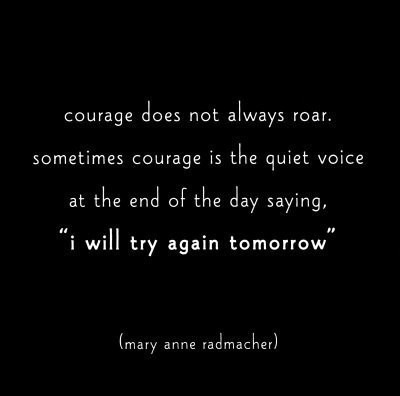Articles On Health And Fitness Biography
Source Google.com.pk
Watching the Olympics, we're all awed by the athletes' bodies -- the perfect physiques of gods and goddesses. But one of their greatest assets is something you can't see -- their mental stamina.
"Athletes can get far on raw physical ability," says Robert E. Corb, PhD, a psychologist and director of the Sports Psychology Program at UCLA. "But what separates the truly elite from the rest is that they know how to use their minds."
You can build up mental stamina with training, just like physical strength, experts say. It also has many uses. "Mental stamina skills aren't only for athletes," Corb says. They can help musicians, actors, writers, or anyone who needs to perform, he tells WebMD.
How can you build up your mental stamina before your next race -- or presentation at work? Here are tips for Olympic athletes and office workers alike.
1. Think Positively
"Self-confidence is probably the most important mental characteristic that athletes need," says Corb. Self-confidence doesn't just stem from physical ability. We've all seen highly-skilled athletes who lose their self-confidence and fall apart.
How do you get more self-confidence? Corb urges people to listen to what they're saying to themselves -- maybe not even consciously. "If you keep saying, 'I'll never be able to do this,' before a marathon, then you won't be able to do it," says Corb. "If you say something enough to yourself, you'll make it true."
Corb stresses that building self-confidence is a mental exercise that you can practice. Listen to what you're saying about yourself. If what you hear is negative, correct it. Consciously think more positive thoughts.
In time, interrupting negative thoughts and replacing them with positive ones will have a real effect on your athletic performance -- and overall outlook, Corb says.
2. Use Visualization
Visualization is a common technique for handling stress. When you're overwhelmed, imagining yourself in a calm, soothing place for a few minutes can help you manage the stress. Athletes use it in other ways.
"Some athletes use visualization right before a game to practice mentally," says David Geier, MD, an orthopaedic surgeon and director of Sports Medicine at the Medical University of South Carolina. A basketball player might close his eyes and think about what a free throw will look like. A sprinter might imagine the gun going off and the first few steps. Visualization can give you a mental space to rehearse.
Corb suggests another type of visualization. "I tell people to visualize past achievements," he says. "It's almost like a highlight reel that you play back in your mind. Focus on times you felt really good, and remember that feeling." It can give you a real boost, he says.
3. Plan for Setbacks
If you're a marathon runner, there are times when you'll hit the wall. If you're a golfer, you'll make a bad shot sometimes. These things happen. What really matters is what you do afterwards.
"One of the things that separates elite athletes is their ability to hold up after a setback," says Corb. "They don't spiral out of control."
Again, this isn't just about your personality -- it's a skill you can learn. How can you regain your focus when things go wrong? "You need to practice techniques to re-center yourself," Corb says.
There's no one way to do it. Some athletes have a ritualized physical routine -- like a specific sequence of stretches. Others have a specific phrase that they repeat to themselves. Some play a specific song -- in their heads if they can't turn on their iPod. Others will take 30 seconds to do deep breathing.
The point is to know what to do when the pressure mounts. Having a plan in place -- even if it's as simple as a word you repeat to yourself -- will boost your confidence.
4. Manage Stress
Feeling stressed before a competition? Try techniques like meditation or progressive muscle relaxation -- in which you consciously relax each muscle group, from your toes to your head.
Of course, channeled the right way, stress can be your ally right before an athletic performance.
"Not all stress is bad," says Geier. "The fight or flight response can push you harder during an athletic competition."
Corb points out that positive stress (excitement) and negative stress (anxiety) really have the same physical effects. Your heart rate and breathing go up. Your pupils dilate.
The difference is how you experience these effects. If excitement before a competition gets you amped up, that's good. If it's tipping you into panic, that's bad. Remember that when you feel stress building, you have some control over how to interpret it.
5. Sleep More
Not only does sleep help athletes physically -- allowing your body time to repair itself after a workout -- but it also has mental benefits. Studies have shown that getting enough sleep can improve reaction time and split second decision making.
How much sleep do you need? Aim for at least seven to nine hours -- and more if you're under a lot of stress or doing intense workouts.
Develop a Plan to Build Your Mental Stamina
Of course, these tips are easier to read than to put into practice. No one gains mental stamina overnight -- it's a skill you have to learn.
"When you watch Olympic athletes getting ready to perform, every single thing they do is intentional," says Corb. "They're focusing their minds with techniques they've learned and practiced for years. It takes a lot of hard work."
Start working now to improve your mental stamina. You may not have the time to practice eight hours a day like an Olympian. But building your mental stamina has a lot of benefits for your game, your career, and life in general -- and it doesn't even require a gym membership.






.jpg)



No comments:
Post a Comment